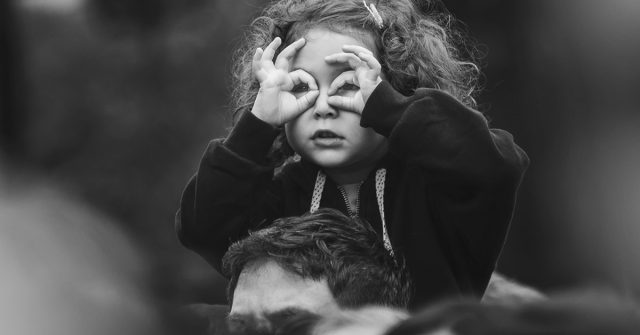Every child is different. They all develop at their own rates and reach important milestones at different times. Despite that, there are some behaviors and developmental delays that may be cause for concern. Unfortunately, many of these things are so subtle that parents might not even realize that they’re a problem.
There are some signs which all parents need to keep an eye out for as they could suggest a greater disorder. Here are 7 signs that an infant may have autism which most people ignore.
1. Poor Eye Contact
Most babies will make eye contact with their family members as well as with other people who may be around them. Likewise, they usually follow objects with their eyes such as toys, bottles, or things that they see outside. If an infant doesn’t seem to be making much eye contact, however, it could be a sign of comprehension and communication issues.
2. Delay in Cooing
Although the average child should begin talking by the age of 2, they will still begin making sounds much earlier than that. Once they reach 12 months, the majority of infants will be babbling and using nonsense words. These sounds are how they will learn to speak and communicate later on.
3. Problems Imitating Social Cues
One of the earliest yet hardest to spot signs of autism in a young child is when they rarely imitate what others are doing. By 9 months of age, most infants will begin to imitate laughter when they hear it along with copying facial expressions and movements.
4. Lack of Gesturing
Although an infant’s motor skills aren’t fully developed, they should still be able to gesture. For example, they may throw their arms in the direction of something in the room or at one of their toys. This is a milestone which is normally reached at around 10 months.
5. Repetitive Behaviors
The natural response of most children is to sit and move in ways which are comfortable to them. However, some children will sit in awkward positions for a long time or display unusual body movements. Likewise, they may also move in repetitive ways such as stiffening their limbs.
6. Unresponsive to Their Own Name
After a few months of hearing their name, infants should begin to understand it and respond to it. If a child seems unresponsive to their own name between the ages of 6 to 12 months, however, it could be an early sign of autism. When this happens, some parents may even think that their child has hearing problems.
7. Lack of Smiling
Seeing your baby smile is often one of the biggest joys for parents. Sadly, it’s something that some parents don’t get to experience as often as they should. One of the hardest to spot signs of autism in a child is when they don’t seem to smile as much as is expected.
It’s vital that parents understand how important it is to monitor changes in behavior or developmental delays in their children. Although nearly every parent will notice these things, many of them may not view them as an issue. However, these 7 things are often the earliest signs of autism in an infant.
Share this article with any parents that you know to spread awareness of the subtle signs of autism in infants.





